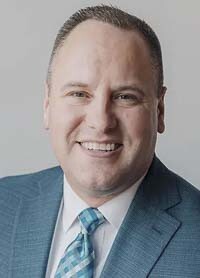
Chris Cargill of the Mountain States Policy Center discusses the misleading phrasing from those opposed to giving families more education options
Chris Cargill
Mountain States Policy Center
I have two boys at home. I’m used to repeatedly hearing something that isn’t true, in hopes that I’ll believe it. So, I guess I shouldn’t be surprised by the misleading phrasing from those opposed to giving families more education options.

When a new proposal was announced last week to provide Idaho families with an education tax credit – something that exists in both red and blue states and would not take any funding from public schools – those opposed to more education options called it a “universal school voucher scheme.” (Sounds scary!)
During the last legislative session, every time legislators put forward various ideas to expand options for students, those opposed screamed “voucher.” Sometimes, even the media would call a proposal a voucher – even if it really wasn’t.
It seems no matter what policy is introduced, there are some who will always call it a “voucher.”
Why the constant refrain? The simplest explanation is that the term “voucher” is not popular in public opinion research.
The dictionary defines voucher as a “form or check indicating a credit against future purchases or expenditures.”
By the very definition, tax credits are not vouchers. Education Savings Accounts are not vouchers. In fact, no one in Idaho has proposed a school voucher.
A voucher program would only let parents use taxpayer dollars to pay for tuition at a private school approved by the state. Typically, the state writes a “form or check” to a school in the name of a student to cover tuition.
An Education Savings Account is much different. First, money is held in an account by the state – it is not given directly to schools. Second, an ESA allows parents to use a portion of state funding on a variety of education services. Yes, it can include private school tuition, but it can also include tutoring, special needs services, curriculum, mental health treatment and much more – so long as it is for an educational purpose.
Tax credits are even more simple. Essentially, it’s no different than a tax credit for your mortgage interest or even a child tax credit. It’s completely separate from any public school funding.
In the end, tax credits are given to parents directly, ESA’s are given to parents via a state fund, and vouchers are given to schools or a specific institution by “form or check.”
No one who supports or opposes education choice options or covers the topic should use the term “voucher” unless an actual voucher bill is introduced. Doing so is simply inaccurate and on such an important topic, the clarity is crucial.
Regardless of the proposal, the goal is to meet the educational needs of all children in a fair, responsible, transparent, and accountable way.
The debate around efforts to expand options for students and families with enhanced education choice opportunities whether through ESAs, tax credits, or by expanding eligibility for Empowering Parents grants should focus on the policy and not be shrouded in misleading terms.
There will be a variety of education choice bills introduced in the 2024 Idaho Legislative session. Hopefully, lawmakers can come up with a plan that uniquely fits Idaho and helps more students succeed.
But no matter what they come up with, like the little boy who cried wolf, those opposed to new education options will still likely cry voucher.
Chris Cargill is the president of Mountain States Policy Center, an independent free market think tank based in Idaho, Montana, Wyoming and Eastern Washington. Online at mountainstatespolicy.org.
Also read:
- Letter: ‘There will be consequences’Hazel Dell resident Bob Zak criticizes Democratic lawmakers for advancing ESSB 5181, arguing it undermines parental rights and defies biblical principles.
- Op-Ed: La Center Schools — Committed to families and their childrenIn a public letter, the La Center School Board and Superintendent Peter Rosenkranz affirm their commitment to supporting families and honoring both state law and community values amid state-level scrutiny.
- Letter: Mayor blames others on homelessness problem in Vancouver while she has enabled a lawless encampment zoneVancouver resident Peter Bracchi urges city leaders to enforce laws and end permissive policies that have allowed unsafe encampments to overrun public spaces near the Share House.
- Letter: ‘Look it up for yourself’Camas resident Anna Miller encourages skeptics of Elon Musk’s claims about government waste to do their own research using official resources.
- Opinion: Defending the indefensibleNancy Churchill argues that Washington’s lawsuit against a sheriff cooperating with ICE reveals a deeper political agenda that puts public safety at risk.










